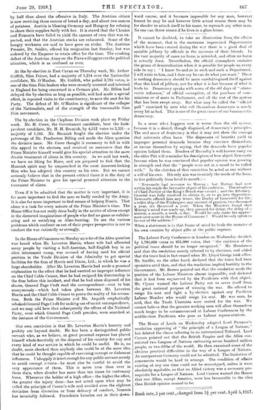Our own conviction is that Mr. Leverton Harris's honesty and
probity are beyond doubt. He has been a distinguished public servant who, as we believe, at great personal expense has placed himself whole-heartedly at the disposal of his country for any and every kind of war service in which he could be useful. He is, no doubt, more shocked than anybody else could be at the mere idea that he could be thought capable of exercising corrupt or dishonest influences. Unhappily it is not enough for any public servant merely to avoid corrupt actions—he must also be careful to avoid the very appearance of them. This is more true than ever in these days, when slander has more than ten times its customary force. Whenever the holder of a high office—the higher the office, the greater the injury done—has not acted upon what may be called the principle of Caesar's wife and avoided even the slightest deviation from discretion or from delicacy of conduct, Nemesis has invariably followed. Precedents broaden out in their down-
ward course, and it becomes impossible for any man, however honest ho may be and however little actual reason there may be for slander to attach itself to his name, to reproach any other man. No one can throw stones if he lives in a glass house.


























 Previous page
Previous page